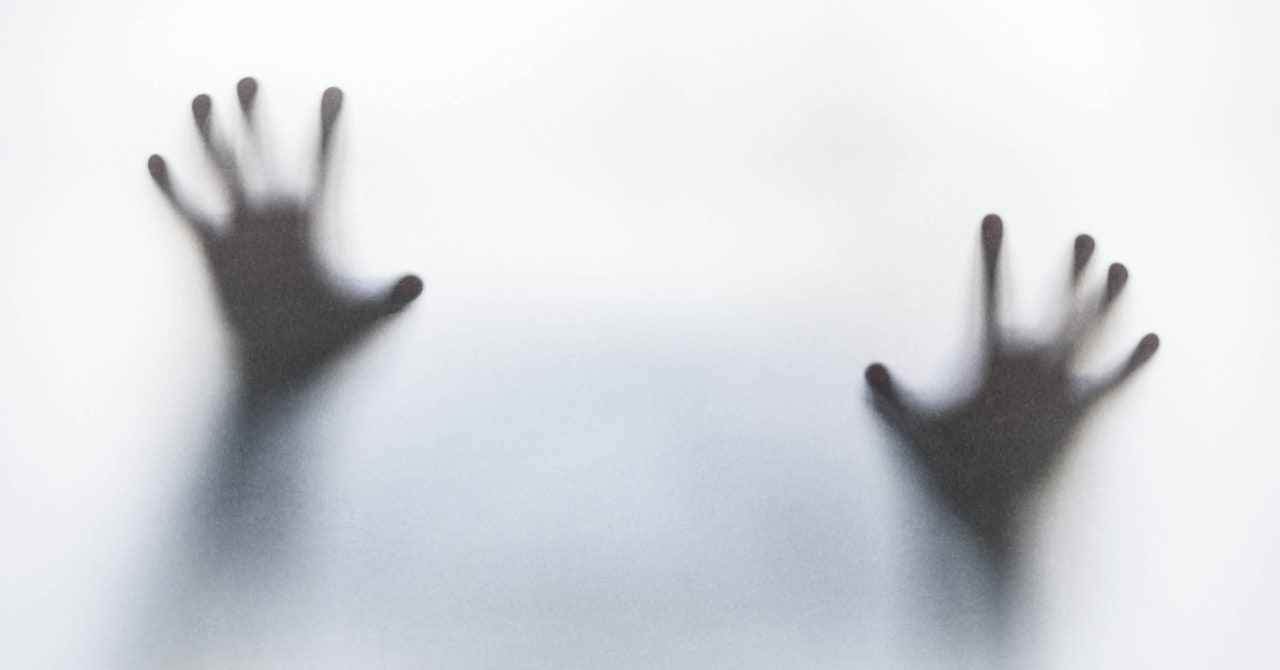“Hmph,” a zombie says to his friend. “Rrrg,” the friend responds. Hilarious! Just kidding. Who can say if they’re even joking? No one speaks zombie. Possibly zombies themselves don’t speak zombie. There’s a predicament for our present circumstances: Can zombies communicate?
Survey says: Don’t be dumb. One can exhume from the graveyards of pop culture certain incarnations that do—“Send more paramedics,” one intones, slowly but esuriently, in The Return of the Living Dead—but overanimating a reanimation, as Dr. Frankenstein will tell you, tends to spoil the fun. Zombies eat brains; they don’t have them. (Even in undeath, we want what we don’t have.) Their purpose is to shuffle and squelch toward you, heedless of blown-off limbs. Unpoetic monsters, they can scarcely compose a thought, much less a sonnet. Zombification is, in every way, an act of de-composition.
Now look over there, in the crosswalk. A human-shaped figure is stumbling through it, neck bent unnaturally, oblivious to the “Don’t Walk” sign. Most cultures would classify this thing, rightly, as a zombie. Of course, German taxonomists have a more precise term for it: Frankenstein’d together from two English loanwords, “smartphone” and “zombie”—the condition respects no borders or language barriers—“smombie” was named das Jugendwort des Jahres in 2015, Germany’s youth-word of the year. It’s been in the global lexicon ever since. In the summer of 2019, The Economist ran a story in the Asia section of its print edition titled “Smombie Apocalypse,” reporting that smombified pedestrians in South Korea cause 370 traffic accidents a year. Across the world in the UK, some Scots made a high school musical out of the phenomenon, 2017’s Anna and the Apocalypse, cinema’s showiest indictment of smombies to date. Teens text their friends at sunup, and by sundown they’re eating each other alive—what’s the difference? “I’ve been calling you all zombies for years,” the vice principal wails in his big number.
A complication, then: If smombies can still send text messages, in fact depend for their smombiehood on this act of composition, then perhaps zombies can communicate after all. Not so fast. When two of Jim Jarmusch’s zombies in his latest film, The Dead Don’t Die, return to their favorite diner for a snack of waitress washed down with what their rotting articulatory systems manage to croak out as “cof … fee,” they’re not accomplishing true speech. Instead, it’s a moment of “vestigial memory,” as Jarmusch calls it, where zombies mimic the ol

